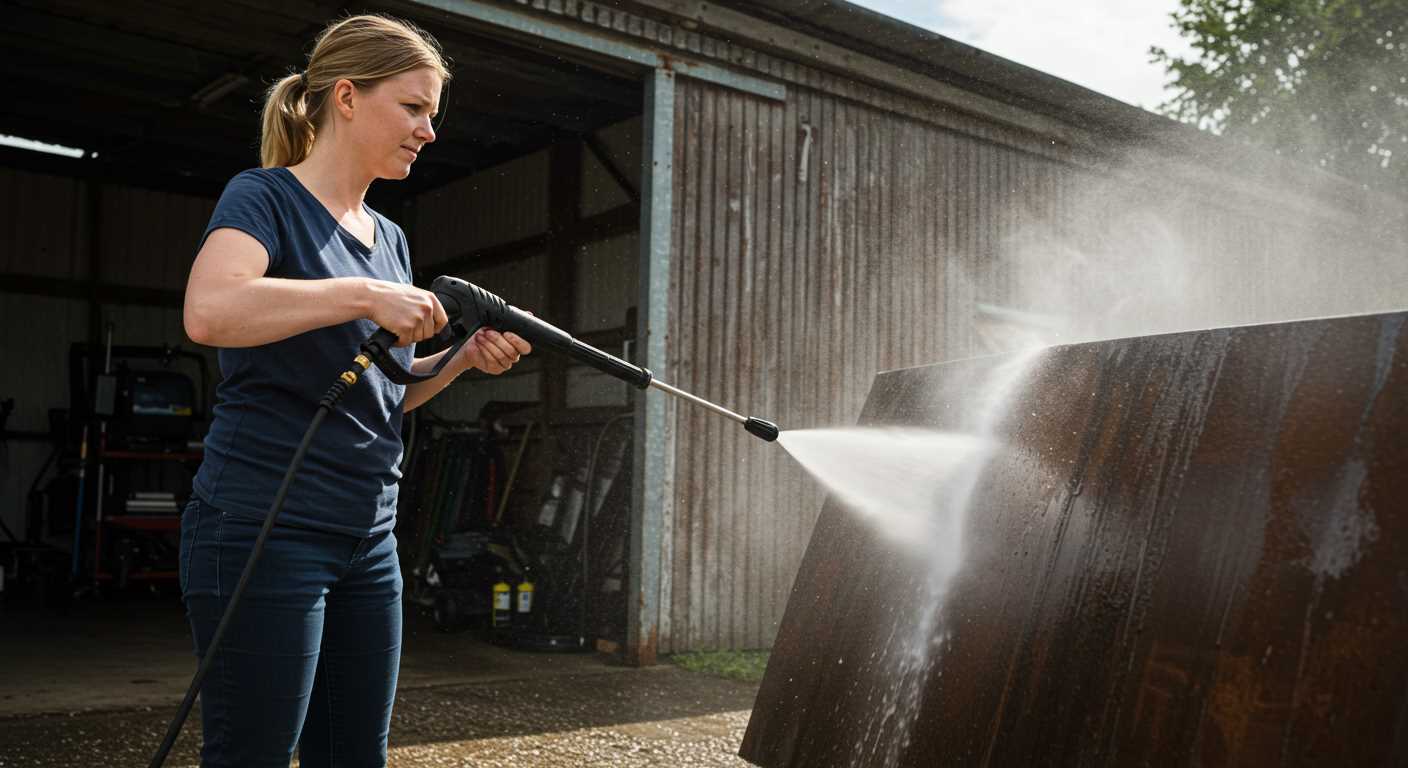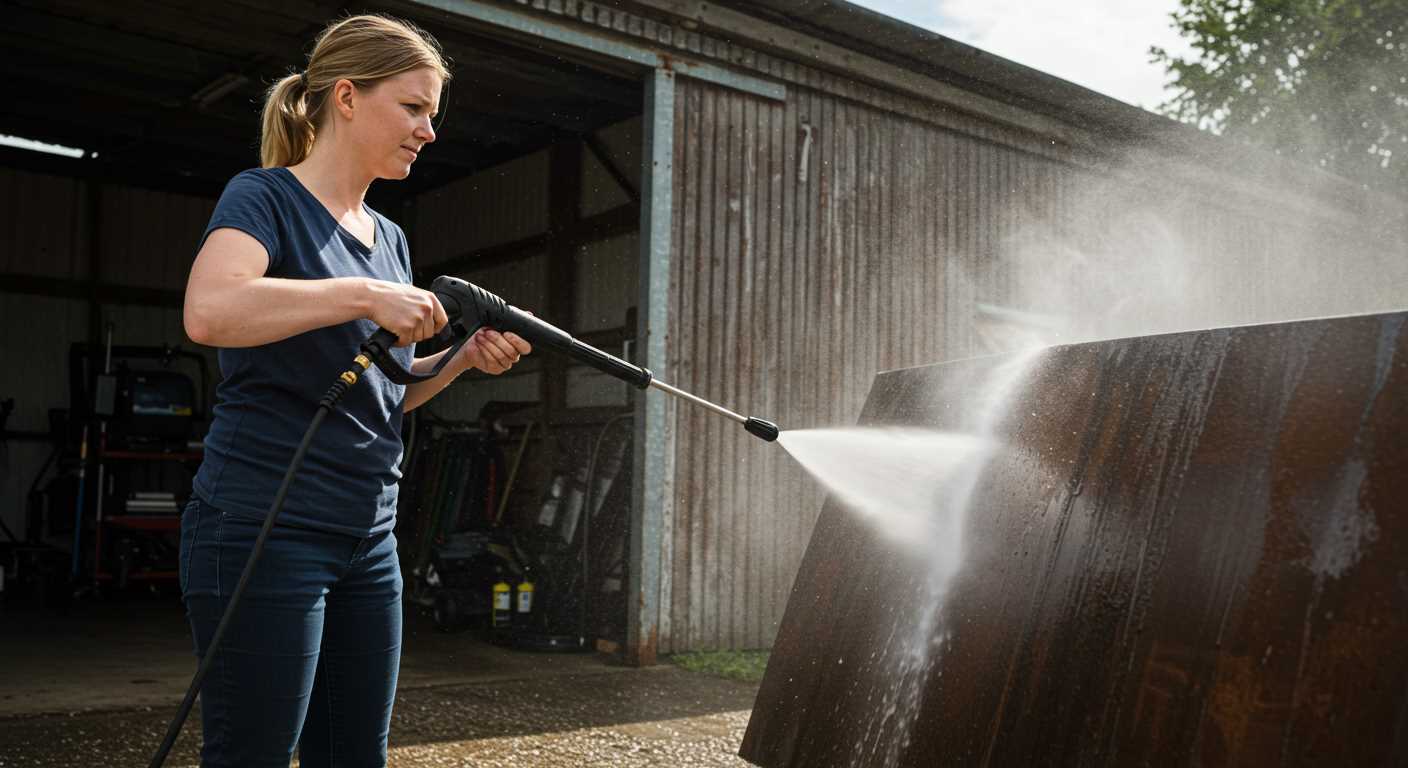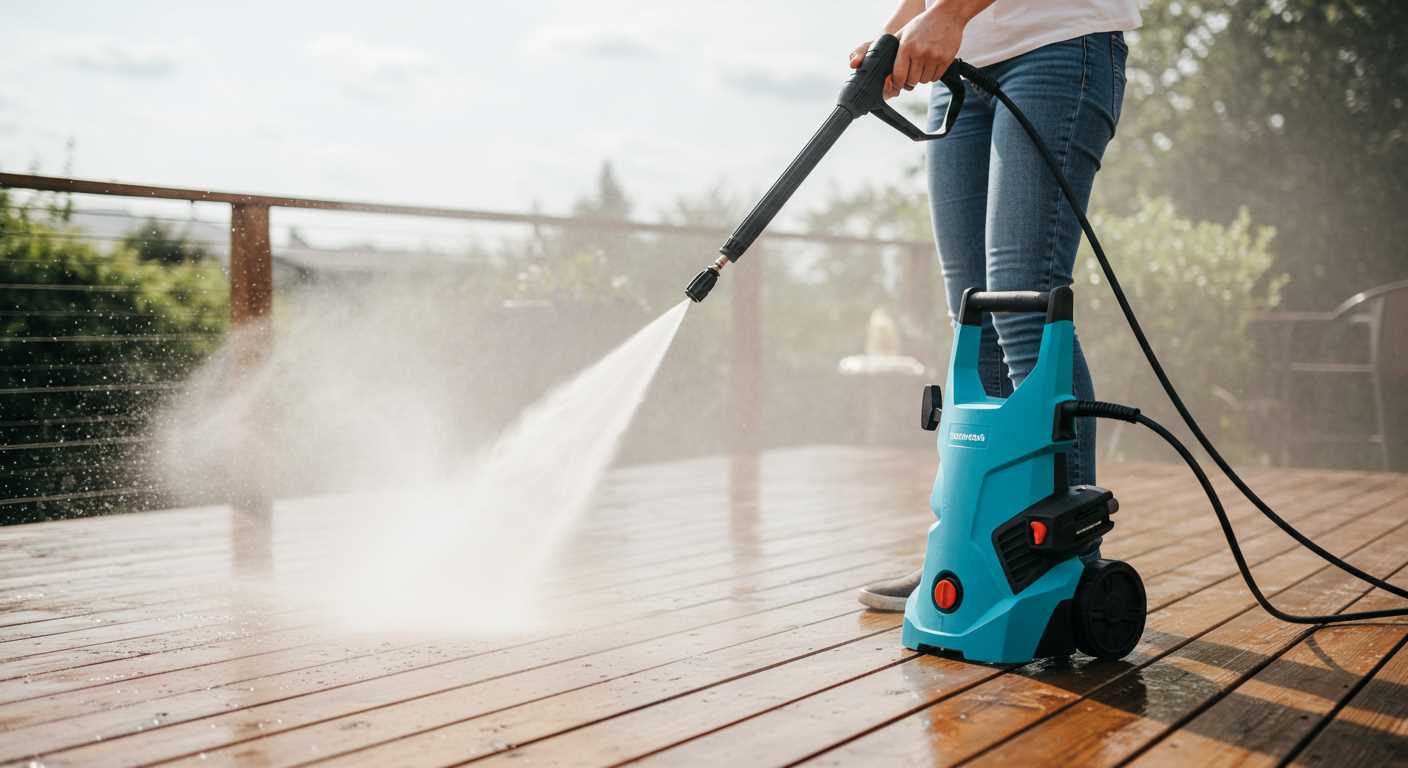




Investing in a high-pressure cleaning unit is a practical choice for maintaining your home or vehicle, even in the absence of a traditional water source. I’ve encountered various situations during my decade-long experience in the cleaning equipment industry where individuals faced similar challenges. One effective approach involves utilising a large water container, such as a rain barrel or a storage tank, which can supply ample water for your cleaning tasks.
Another option is to connect your equipment to a hose that draws water from an interior source, like a sink or bathtub. This method requires a bit of creativity in terms of hose length and fittings, but I’ve witnessed many users successfully adapt their setups. Remember to check compatibility with your device’s specifications to ensure optimal performance.
Utilising a portable water pump can also be a game changer. These pumps can draw water from various sources, including ponds or buckets, making them incredibly versatile. Drawing from personal experience, I once helped a neighbour clean his patio using a pump connected to his garden hose, and the results were impressive.
Ultimately, while the absence of an external water supply may seem like a limitation, several alternatives exist that can facilitate effective cleaning. Explore these options based on your specific circumstances, and you might find a solution that suits your needs perfectly.
Using a Pressure Washer with a Bucket of Water
Utilising a bucket of water is a practical alternative for operating a high-pressure cleaning device when a hose connection is unavailable. Here’s how to effectively use this method:
- Choose the Right Model: Opt for a unit that supports self-priming. Many models can draw water from a container.
- Connect the Suction Hose: Attach the suction hose to the water inlet of your device. Ensure a tight fit to prevent air leaks.
- Prepare the Bucket: Fill a sturdy bucket with clean water. Ensure it’s deep enough to submerge the suction hose completely.
- Check Filters: Inspect any filters in the water intake. Clean filters prevent clogs and maintain flow efficiency.
- Start the Device: Turn on the machine according to the manufacturer’s instructions. It may take a moment for the pump to draw water from the bucket.
- Monitor Water Level: Keep an eye on the water level in the bucket. Refill as needed to ensure continuous operation.
From my experience, maintaining the right water temperature can enhance cleaning efficiency. Warm water works wonders on tough grime, but ensure the device can handle it. After using this method on various surfaces, I found it incredibly effective for cleaning outdoor furniture and vehicles.
- For best results, use the appropriate nozzle for the task at hand.
- Be mindful of the bucket’s location to avoid spills and maintain a clean working area.
- Consider using a filter to prevent debris from entering the unit, especially if the water source isn’t pristine.
This approach allows flexibility for cleaning tasks in locations where traditional water sources are absent. My experience confirms it’s a viable option for maintaining cleanliness in various settings.
Connecting a Pressure Washer to an Indoor Tap
For those wanting to utilise cleaning equipment indoors, linking to a standard indoor spout is a practical option. To achieve this, you’ll need a few specific components. First, ensure you have a hose adapter that fits the indoor plumbing. Most indoor faucets have a standard thread size, so a compatible adapter should be readily available at hardware stores.
Next, secure a quality hose that can withstand the water pressure of your machine. Using a shorter hose reduces the risk of kinks, which can hinder water flow. Once everything is set up, simply attach the hose to the indoor faucet and to your cleaning unit. Make sure all connections are tight to prevent leaks during operation.
Keep in mind that some indoor taps may not provide the same flow rate as outdoor ones. If you notice a significant drop in performance, consider checking your connections or the water pressure in your home. Regular maintenance of your plumbing can also help ensure consistent water flow.
For optimal cleaning results, pairing the right washing solution with your equipment is crucial. A quality product, like the best car wash soap to use with pressure washer, can enhance the effectiveness of your cleaning sessions, leaving surfaces spotless.
Portable water tanks for pressure washers
For those looking for mobility and convenience, portable water tanks serve as an excellent solution. I remember my first experience using one during a job where access to a water source was limited. I opted for a 50-litre tank, which turned out to be just the right size for the task. It was lightweight yet sturdy, allowing for easy transportation in my vehicle.
When selecting a tank, ensure it has a good pump. A few models come with built-in pumps, which can be a real time-saver. I once used a tank with a manual pump, and it was quite the workout. A powered option makes a significant difference, especially for larger jobs. A tank that can maintain a steady flow reduces the hassle of constantly checking water levels.
Look for tanks that feature a wide opening for easy filling. On one occasion, I struggled with a narrow opening that made refilling a tedious task. A tank with a larger cap is much more user-friendly and saves time. Also, consider models with a gauge to monitor water levels at a glance; it prevents unexpected interruptions during work.
For versatility, choose a tank that is compatible with various types of equipment. Some tanks come with multiple outlet options, which can be incredibly handy. I once had a job that required switching between different tools, and having a tank that could accommodate all of them made the process seamless.
Finally, ensure the tank is made from durable materials. I’ve seen cheaper plastic tanks break after just a few uses, whereas a solid polyethylene tank can withstand the rigours of regular transport and use. Investing in quality pays off in the long run, saving the stress of replacement.
Considerations for Pressure Washers with No Water Source
For those lacking a direct water supply, selecting the right equipment is essential for achieving optimal results. It’s important to assess the water requirements of different models before making a decision. Some units are designed to work with minimal water flow, while others may struggle without a consistent source.
When evaluating options, I recommend checking the water intake specifications. Certain units can operate effectively with limited water input, making them suitable for bucket use or other unconventional methods. This is particularly advantageous when dealing with specific tasks, such as cleaning dirt bikes, where portability and convenience are priorities. For those interested, consider this pressure washer for dirt bikes.
Another factor to consider is the pump type. Electric models typically have lower flow rates compared to gas-powered alternatives. If you opt for an electric version, ensure it can handle the demands of your cleaning projects without a steady water supply. Some may require adjustments to the nozzle settings or techniques to maximise effectiveness.
Additionally, investing in accessories like a water tank or a larger bucket can enhance your cleaning capabilities. A tank can provide a more stable water supply, allowing you to work without interruptions. Always ensure the hose length is adequate to reach your water source, whether it’s a bucket or a tank, to avoid unnecessary strain on the equipment.
Lastly, consider the portability of your chosen system. If you plan on moving between indoor and outdoor spaces, lightweight units or those with wheels are invaluable. Having the right setup will save time and effort, making your cleaning tasks more manageable.
Alternative cleaning methods without a pressure washer
One effective method for tackling tough grime involves using a high-quality scrub brush paired with a bucket of soapy water. I recall a time when I had to clean my patio after a long winter. Instead of waiting for a water source, I mixed a strong solution of dish soap and warm water, dipped the brush in, and scrubbed away. The combination of elbow grease and detergent worked wonders, lifting dirt and stains that had settled in over the months.
Another option is steam cleaning. Investing in a steam cleaner allowed me to eliminate bacteria and deep-seated dirt without relying on excessive water. During a particularly messy spring cleaning, I used it on my tiled floors and outdoor furniture. The high temperature effectively broke down grime, leaving surfaces spotless and sanitised. Plus, it reduced the need for chemical cleaners, making it an eco-friendly choice.
For outdoor surfaces, a garden sprayer can be a handy tool. I often fill my sprayer with a diluted vinegar solution to tackle mildew and algae. A few pumps build pressure, allowing me to spray the mixture on affected areas, wait for a while, and then rinse off with a hose. This method is particularly useful for roof shingles and siding, where a gentler approach is necessary to avoid damage.
Lastly, consider using a foam cannon attached to a standard garden hose. This tool mixes soap with water, producing thick foam that clings to surfaces for effective cleaning. I’ve used it on my car and patio furniture, and it’s a fun way to ensure thorough coverage. After letting the foam sit for a bit, rinsing with the hose reveals a sparkling finish.





.jpg)
.jpg)


